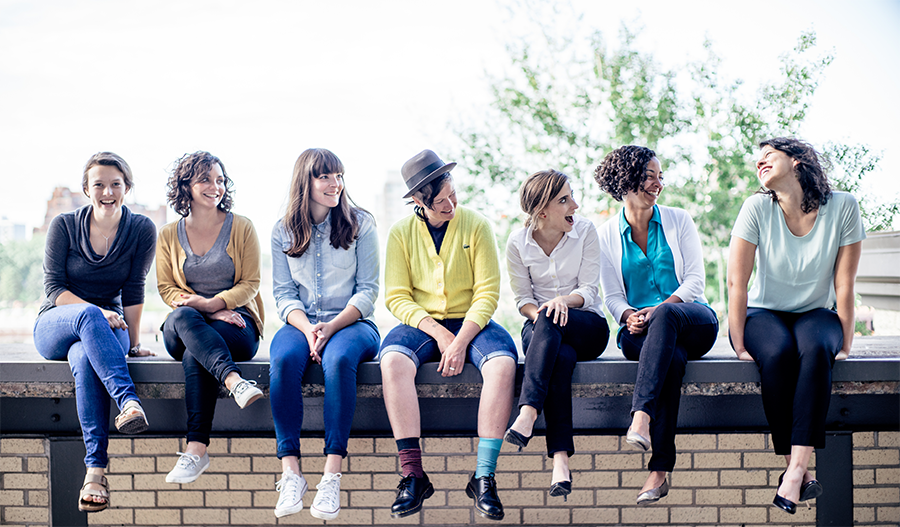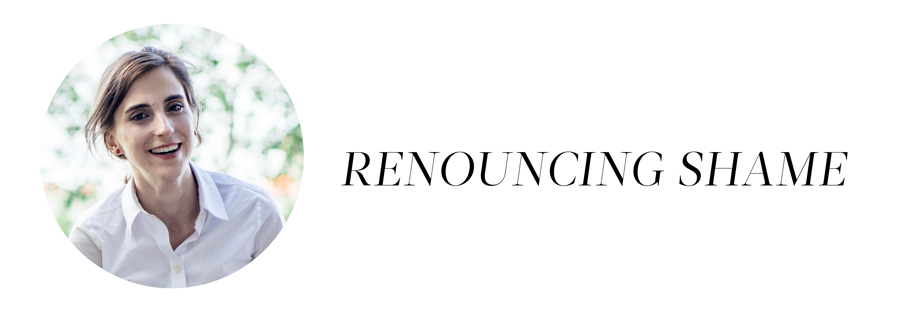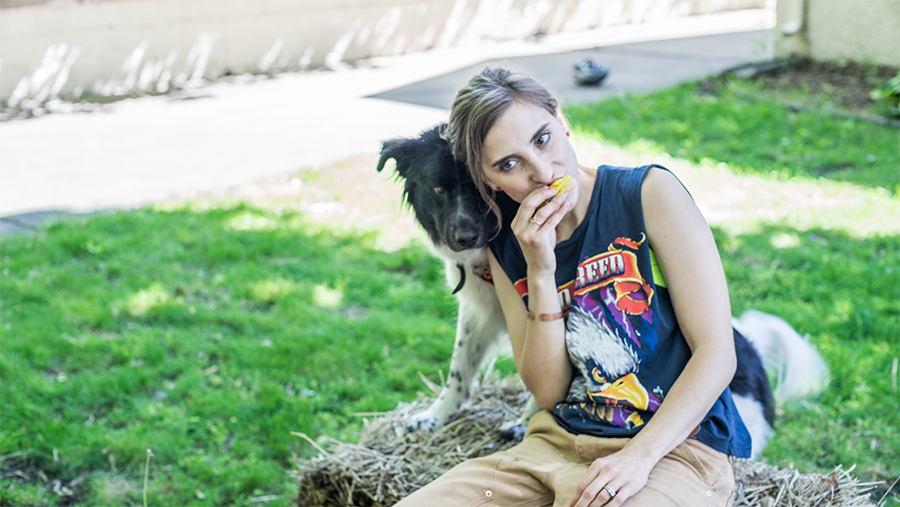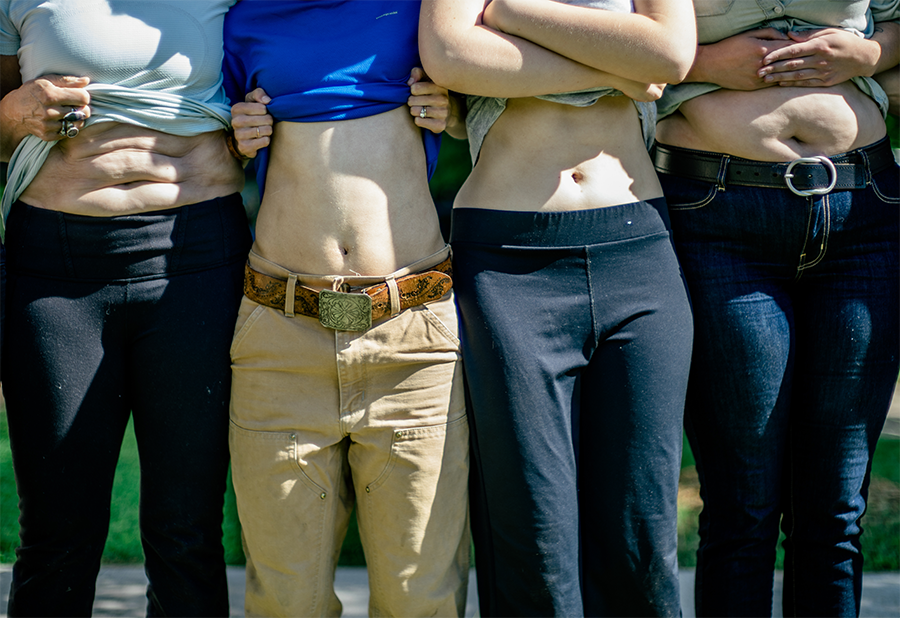
When it comes to women’s intimate health products, it may as well be the 1980s. The truth is many women and people across gender identities and expressions silently suffer—from tampon leaks to incontinence to painful intercourse. Very few feel comfortable speaking up. This silence kills innovation. A mentality builds: if no one’s talking about it, then we don’t have to fix it. That’s bullshit.
Ova Woman is ending the days of silent suffering. We are a body positive community that vocally advocates for innovation in women’s intimate health products. From menstruation to post-menopause, we seek out and develop products that provide women greater mobility and comfort.
Words by Elise Maxwell / Photography by Marie Ketring

I am strong, independent, and feminist, but I can honestly say I’ve never felt fully comfortable in my body. Body shame is debilitating and is keeping all people—but especially girls, women, and anyone who doesn’t conform to society’s strict standards of gender and beauty—from realizing their full potential. We need to be vocal about these moments of insecurity. It’s time that we start sharing our experiences and supporting each other. These moments I am about to share with you are vivid for me. I no longer want them to be painful. Instead I want them to be a call to action for other women to share their stories.
Your stories are why Ova Woman exists. I’ll start by telling mine…
Puberty is often where the shame begins. I was nine and in third grade when I first remember feeling gawked at. My body was no longer synonymous with running, biking, and playing. My chest was starting to form and people stared. We were climbing rope in gym class and a male classmate pointed out my chest bumps to a small group of students. I quickly crossed by arms in front of my chest. Two years later my mom told me I needed to start wearing a training bra to hide my nipples. I was mortified.
In fifth grade I began shaving. I remember getting terrible razor burn and was so embarrassed. My legs weren’t as smooth as other girls’. I remember not wanting to wear my basketball shorts. A “cool” boy made a comment about me having weird skin after a basketball game and I quickly buttoned up my tearaway pants.
I started my period at age twelve, while riding my bike with friends the summer before sixth grade. I noticed that my lower abdomen ached. I thought maybe I had sat on my bike too long or something like that—I had no idea that I had started my period. I had some idea of what a period was, but didn’t really think it pertained to me. When I got home from the bike ride I went downstairs to use the bathroom and noticed that there was a layer of partially dried, partially wet blood on my underwear. I was shocked. I went upstairs to my bedroom, changed my underwear, and then rolled up a bunch of toilet paper and slid it between my bottom and my underwear. When I knew my mom wasn’t in her bedroom, I went into her bathroom and looked for pads. I didn’t tell anyone. That lasted for almost two years until my mom noticed a stained pair of underwear. I was mortified.
In high school I was ashamed of my breasts. They were so petite compared to other girls my age. My boyfriend cheated on me with someone who had much bigger breasts than me. There is a part of me that believes I am less of a woman because I have small breasts.
When we were getting changed for a school dance, one of my friends commented on how my thighs touched. Up until that moment, I was pretty keen on my soccer thighs. I was confused—I had no idea this was a problem, but from that moment on I started looking at my legs when I stood in front of the mirror and making sure they were just far enough apart so my thighs didn’t touch. I still do that.
I started rebelling against these feelings early on. I stopped shaving in high school. I sought out alternative menstrual products in college. I stopped wearing a bra. I began reading feminist articles and literature. I stopped purchasing beauty magazines. This was safe in the confines of my parents’ house and college. I felt moments of body love, but they never lasted very long.


When I entered the professional world, this body positive thinking really came to a halt. I wanted to excel in my career and with this came a desire to be mainstream. I shaved; I went back to tampons; I wore a padded bra and I wore foundation and mascara every day. I also began detesting my thighs—I feared cellulite. And every time my skin would break out, I became somewhat timid and down.

This shame and desire to mold myself to fit what I imagined a “professional woman” looked like wasn’t working. I didn’t feel authentic and I was sick of hating my body. The summer prior to business school I made the conscious decision to seek out body positive products and resources. I started using the menstrual cup again and realized that it was actually incredibly practical for professional women because it can be worn for several hours longer than any other feminine hygiene product. I began to research other innovative women’s health products that allowed for greater comfort and mobility.

I decided to start Ova Woman as a way to aggregate these innovative products and provide women a safe environment to share their experiences.
The pressure on women to look perfect and be discreet about our everyday health needs must stop.

Professional women who do not wear makeup have lower chances for being hired and promoted. (source)
Ten percent of women have eating disorders. (source)
Between 1992 and 2005 the volume of plastic surgery increased by 725%. (source)

1. Start paying attention to the number of times you feel ashamed each day. How many of these instances revolve around your body?
2. What conversations can we start having with the women in our lives that transform these feelings of shame into feelings of empowerment?
3. How do you balance the constraints of the professional world with “alternative” practices?
Send Elise your answers: elise@ovawoman.com

1. July 2 Ova Woman site is live
2. August 14–16 Pop-up store at YWCA Women’s Triathlon
This is part one of a three-part essay on Elise’s entrepreneurial journey. This story is presented in partnership with the Sands Fellowship at University of Minnesota’s Carlson School of Management.








